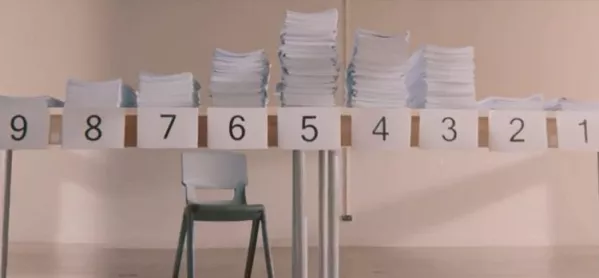Anyone confused by the new numerical GCSE grades being introduced this week has “not thought about it hard enough”, according to an Ofqual board member.
There have been warnings that employers will view the 9-1 grades as “gibberish” and many parents are confused about what they mean.
But Barnaby Lenon, who is chair of the Independent Schools Council as well as sitting on the exam regulator’s board, told Tes: “There is no reason for anyone to say it’s confusing.
“People who say they are confused about the new grades have simply not thought about it hard enough. Those people have simply not sat down and worked it out. C equals 4, A equals 7.”
“If you can remember that, as a parent or a member of the public, then you have completely grasped everything you need to know about the reforms.”
In fact, Ofqual says only that “broadly the same proportion of students will get a grade 4 or above as would have got a grade C or above”.
And when the changes were announced in 2014, Glenys Stacey, then Ofqual’s chief regulator, stressed: “It is not right to say that a new grade 4 will equal a current grade C.”
While roughly the bottom two-thirds of pupils who would have got a C will now get a grade 4, the top third will get a grade 5.
The situation is further muddied by the government’s decision to make grade 4 a “standard pass” and grade 5 a “strong pass”.
‘No direct equivalence’
Mr Lenon, a former head of Harrow School, added that schools should not worry: “What matters is what universities regard as being a pass. Universities generally are saying a 4 is a pass in the way a C was a pass.”
However, University College London and King’s College London have set grade 5s in maths and English GCSEs as minimum requirements.
Mary Bousted, general secretary of the ATL teaching union, said: “I think if Ofqual had tried they could not have made a more confusing system.
“There is no direct equivalence between a C and a level 4 and level 5. It took the secretary of state Justine Greening to clarify that 4 is a pass and 5 is a strong pass.
“We don’t know yet which colleges will accept which students with either a 4 or a 5.
“And to put 1 at the lowest and 9 at the top when the grades go alphabetically in a different order from A* to G just seems to put the icing on the cake.”
She added: “Mr Lenon and Ofqual may think that everything in the qualification grading system is rosy, but most teachers don’t and importantly employers don’t either.
“I do think it is quite remarkable, however, that somebody on the board of Ofqual can say ‘if you don’t understand it then you haven’t tried hard enough’.
“No Mr Lenon: if people don’t understand it, then you haven’t tried hard enough - and Ofqual hasn’t tried hard enough - to explain it. And that is because you have set up a system that is inherently quite ridiculous.”
This is an edited version of an article in the 18 August edition of Tes. Subscribers can read the full article here. This week’s Tes magazine is available at all good newsagents. To download the digital edition, Android users can click here and iOS users can click here
Want to keep up with the latest education news and opinion? Follow Tes on Twitter and like Tes on Facebook




